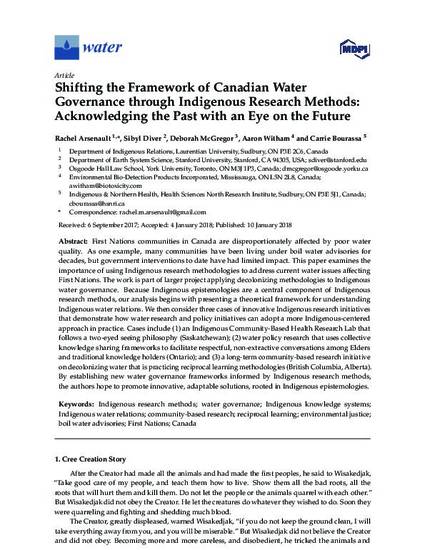
- Indigenous research methods, water governance, Indigenous knowledge systems, Indigenous water relations, community-based research, reciprocal learning, environmental justice, boil water advisories, First Nations, Canada
First Nations communities in Canada are disproportionately affected by poor water quality. As one example, many communities have been living under boil water advisories for decades, but government interventions to date have had limited impact. This paper examines the importance of using Indigenous research methodologies to address current water issues affecting First Nations. The work is part of larger project applying decolonizing methodologies to Indigenous water governance. Because Indigenous epistemologies are a central component of Indigenous research methods, our analysis begins with presenting a theoretical framework for understanding Indigenous water relations. We then consider three cases of innovative Indigenous research initiatives that demonstrate how water research and policy initiatives can adopt a more Indigenous-centered approach in practice. Cases include (1) an Indigenous Community-Based Health Research Lab that follows a two-eyed seeing philosophy (Saskatchewan); (2) water policy research that uses collective knowledge sharing frameworks to facilitate respectful, non-extractive conversations among Elders and traditional knowledge holders (Ontario); and (3) a long-term community-based research initiative on decolonizing water that is practicing reciprocal learning methodologies (British Columbia, Alberta). By establishing new water governance frameworks informed by Indigenous research methods, the authors hope to promote innovative, adaptable solutions, rooted in Indigenous epistemologies.
Available at: http://works.bepress.com/deborah-mcgregor/22/
